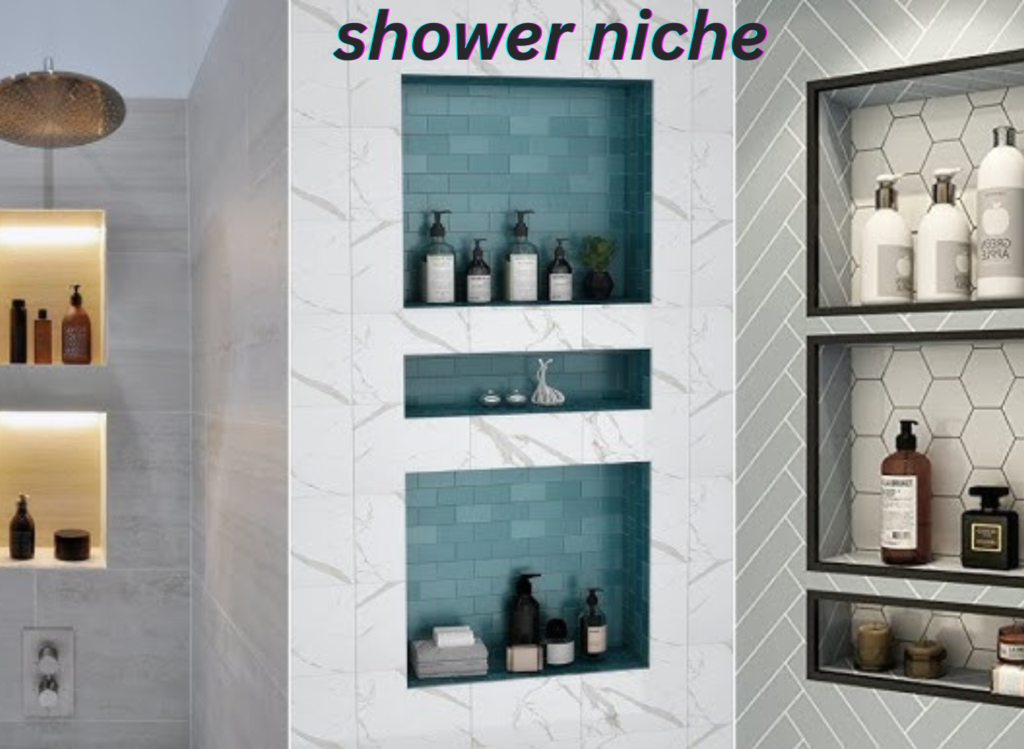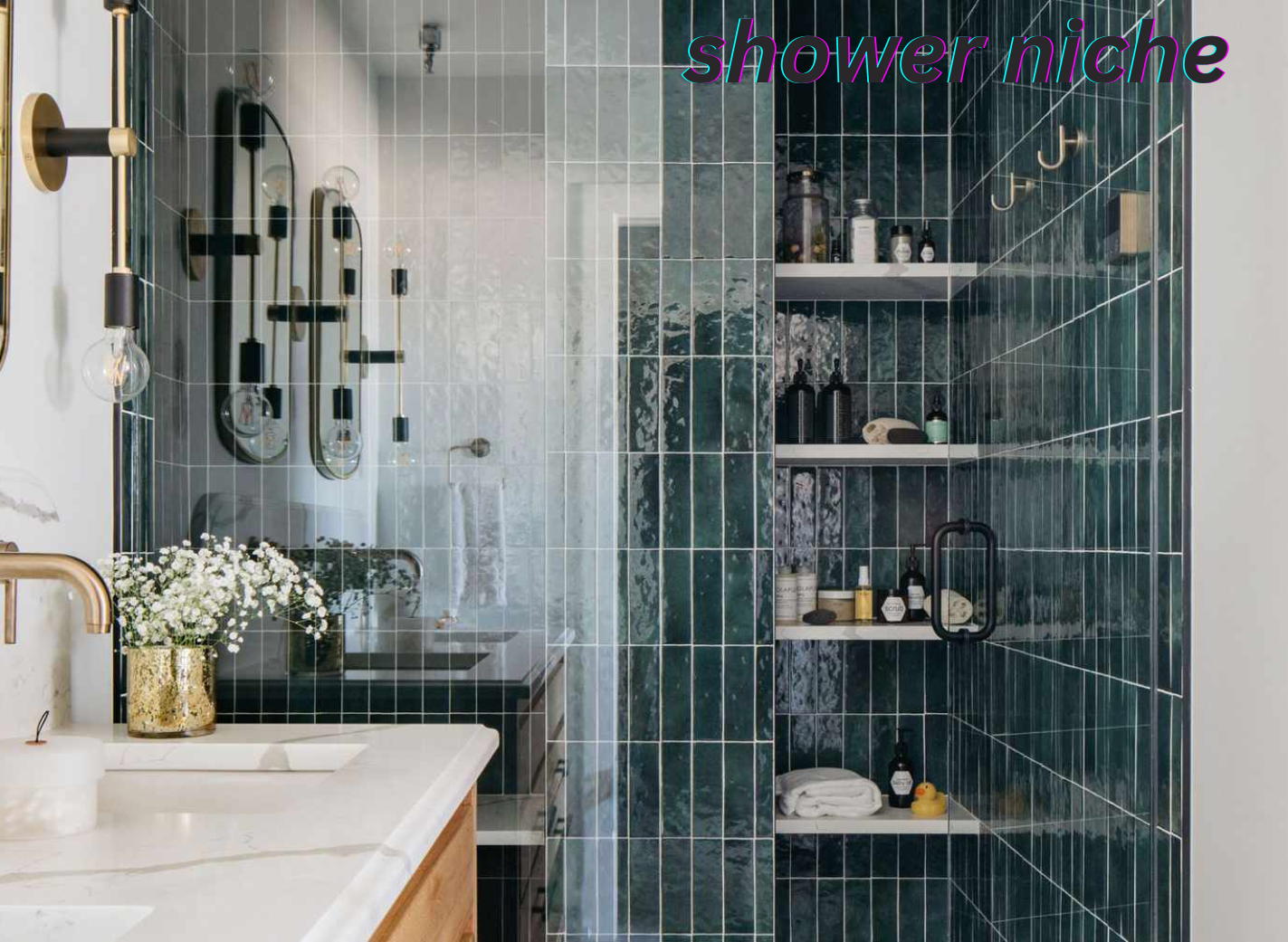In modern bathroom design, every inch of space counts, and the shower niche has become an essential element for both function and style. Whether you’re remodeling your bathroom or building a new one, integrating a shower niche can transform your shower area from a simple, utilitarian space to a well-organized, stylish, and functional part of your home. In this comprehensive guide, we will explore what shower niches are, the different types of niches available, design options, installation tips, and maintenance advice, all aimed at helping you create a beautiful and practical bathroom.
Understanding the Importance of a Shower Niche
A shower niche is a recessed shelf or storage area built into the wall of a shower, providing a dedicated space for toiletries, shower products, and other essentials. Unlike traditional shower caddies or hanging shelves, a shower niche is permanently installed within the wall, offering a sleek and seamless storage solution. Shower niches have gained popularity due to their ability to maximize space in smaller bathrooms while maintaining a clean, clutter-free look.
The benefits of shower niches extend beyond just storage. They help keep your bathroom organized and ensure that your shower essentials are always within reach. When installed correctly, shower niches can also improve the overall aesthetic of your bathroom, blending seamlessly with your tiles or other design elements. Whether you want a minimalist design or a more luxurious touch, a shower niche can enhance both the functionality and beauty of your bathroom.
Moreover, the increasing popularity of open-concept shower designs, which often lack built-in storage, has made the shower niche an indispensable part of modern bathrooms. It allows for easy access to soaps, shampoos, conditioners, and other items without the need for bulky shelves or shower organizers, making it an ideal solution for both large and small bathrooms alike.
Types of Shower Niches Finding the Right Style for Your Bathroom
There are several types of shower niches to choose from, each offering different benefits based on your bathroom’s layout and your design preferences. Let’s explore some of the most popular options.
Wall Mounted Niches
Wall-mounted niches are recessed directly into the shower wall, creating a minimalist and space-efficient storage solution. These niches are particularly well-suited for larger bathrooms or walk-in showers, where they can be positioned at a convenient height for easy access. Wall-mounted niches offer a sleek and modern aesthetic, as they appear to “disappear” into the wall, leaving behind a clean, uncluttered look.
Recessed Niches
A recessed shower niche is built into the wall, typically between studs or joists, and it integrates seamlessly with the surrounding tiles. The beauty of recessed niches lies in their ability to maintain the visual flow of the wall surface. Since they are built directly into the wall, they do not protrude and allow the tiles to remain uninterrupted. This option is ideal if you’re looking for a clean, modern look that doesn’t disrupt the overall design of your shower.
Corner Niches
Corner niches are designed to make the most of corner space within a shower, which is often underutilized. These niches are typically triangular or L-shaped, offering a practical and stylish storage solution. By placing a niche in the corner, you free up valuable wall space while maintaining easy access to your products. Corner niches are especially useful in smaller bathrooms or showers where every inch counts.
Custom Built Niches
Custom-built niches allow you to tailor the size, shape, and design to suit your specific needs. Whether you need a larger niche to hold more products or a smaller one to fit into a tight corner, custom-built niches offer ultimate flexibility. This option is perfect for homeowners who want to personalize their bathroom and create a niche that complements their unique design vision.
Floating Niches
Floating niches are an elegant design feature that can add a contemporary touch to any bathroom. These niches are typically suspended by brackets or integrated with shelves, offering a modern, open feel. Floating niches are especially popular in bathrooms with a minimalist aesthetic, where every element contributes to the overall sleekness of the space.
Materials and Design Choices for Your Shower Niche

Choosing the right materials for your shower niche is crucial for both durability and style. Since the niche will be exposed to water and steam on a regular basis, the materials you select should be waterproof, durable, and easy to maintain.
Tile and Stone
Tile and stone are the most common materials used for shower niches. Ceramic tiles, porcelain, and natural stone like marble or granite not only offer excellent durability but also come in a variety of colors, textures, and finishes, making them perfect for creating a customized look. Tiles are especially versatile, allowing you to match your niche with the rest of your bathroom’s design, whether you prefer bold patterns, neutral tones, or sleek, modern finishes.
Glass Shelves
For a more luxurious touch, consider adding glass shelves to your shower niche. Glass is durable, easy to clean, and adds a sophisticated, modern aesthetic to the bathroom. While glass shelves are not as common as tile or stone, they offer a sleek, high-end look and can be combined with other materials like stone or wood to create a unique design.
Waterproofing and Durability
When designing your shower niche, it’s important to consider the materials’ waterproofing qualities. Ensure that the materials you choose are resistant to mold and mildew and that your niche is properly sealed to prevent water from seeping into the walls. Waterproofing is crucial to prolong the life of your shower niche and avoid costly repairs down the line.
Matching the Niche with Bathroom Style
The design of your shower niche should complement the overall theme of your bathroom. For example, a contemporary, minimalist bathroom might benefit from clean lines, neutral colors, and sleek tiles, while a more rustic or traditional space may benefit from the natural textures of stone or wood. When planning your shower niche, consider how it will integrate with the surrounding elements, such as the showerhead, faucets, and the overall tile design.
Installation and Maintenance of Shower Niches
How to Plan for a Shower Niche
Before installing a shower niche, careful planning is essential. Consider the available space in your shower and determine the ideal location for your niche. A well-placed niche should be easily accessible without interfering with other shower features, like the showerhead or controls. Measure the area carefully to ensure that the niche will fit within the space, and make sure that it’s at a height that is both practical and comfortable for users.
DIY vs Professional Installation
Installing a shower niche can be a DIY project if you have experience with tiling and basic construction. However, for those unfamiliar with the process, it’s often recommended to hire a professional. A skilled contractor can ensure that the niche is properly installed, waterproofed, and sealed to prevent future water damage. Professionals also have the expertise to avoid common installation mistakes, such as incorrect placement or improper waterproofing.
Common Installation Mistakes and How to Avoid Them
Some of the most common mistakes in shower niche installation include placing the niche too high or low, failing to waterproof the niche adequately, and using materials that are not suitable for wet environments. To avoid these issues, ensure that you follow the proper installation guidelines, use waterproof materials, and double-check all measurements before proceeding.
Maintaining Your Shower Niche
Maintaining your shower niche is relatively simple, but regular care is necessary to ensure its longevity. Keep the niche clean by wiping down the shelves and walls with a non-abrasive cleaner. Make sure to remove any soap scum or buildup promptly to prevent mold growth. It’s also important to inspect the niche periodically for signs of damage, such as cracks or leaks, and address any issues immediately to avoid costly repairs.
Conclusion
A well-designed shower niche is an investment in both function and style. Not only does it keep your shower organized and clutter-free, but it also adds a modern, polished touch to your bathroom. Whether you opt for a custom-built niche or a standard recessed design, a shower niche can be tailored to suit your needs and the overall aesthetic of your bathroom. With the right materials, proper installation, and regular maintenance, a shower niche can provide lasting value and elevate the look and feel of your bathroom for years to come.
FAQs
What is the ideal size for a shower niche?
The ideal size for a shower niche depends on the space available in your shower and the number of products you wish to store. A common size for a standard niche is 12 inches by 12 inches, but larger niches can be customized to fit your needs.
How much does it cost to install a shower niche?
The cost of installing a shower niche can vary depending on factors such as the type of niche, materials used, and whether you hire a professional. On average, a shower niche installation can cost between $300 and $800.
Can I add a shower niche to an existing bathroom?
Yes, it is possible to add a shower niche to an existing bathroom, though the process can be more complex than installing one during a new build. It may require cutting into the walls and making sure that the niche is properly waterproofed.
How do I waterproof a shower niche properly?
To waterproof a shower niche, ensure that the walls and niche are sealed with a high-quality waterproof membrane. It’s essential to apply this membrane before tiling and to use waterproof materials to prevent water damage.
What are the best materials for a shower niche that won’t stain or crack?
Ceramic or porcelain tiles, stone, and glass are excellent choices for a shower niche, as they are durable, resistant to stains, and relatively easy to maintain.
You May Also Read: https://ventsworlds.com/brainrot-words/

